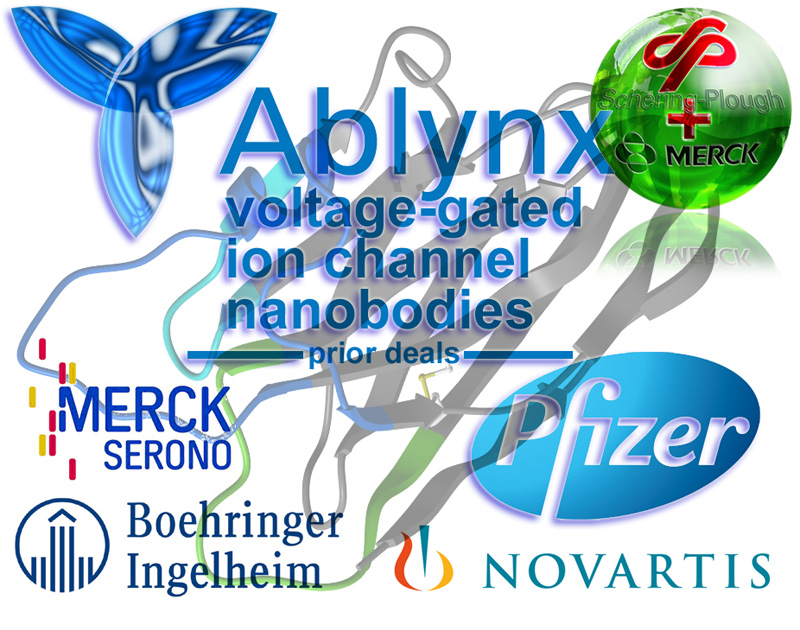 BRUSSELS (Reuters) - Belgian biotech company Ablynx has signed a deal with Merck & Co worth up to 1.7 billion euros ($ 2.3 billion) to develop ways of triggering the body to fight cancer by itself.
BRUSSELS (Reuters) - Belgian biotech company Ablynx has signed a deal with Merck & Co worth up to 1.7 billion euros ($ 2.3 billion) to develop ways of triggering the body to fight cancer by itself.The collaboration involves a new generation of drugs designed to activate the immune system. The first in the field - Bristol-Meyer Squibb's Yervoy - is targeting melanoma, the deadliest form of skin cancer.
Rival Merck filed the first part of an application to market its own potential drug for advanced melanoma earlier this month, pushing up its share price. The firm is testing the same drug for lung and renal cancer.
Ablynx, which already has a neurology partnership with the U.S. drugmaker dating back to 2012, said on Monday that it would be responsible for discovering antibody-derived proteins, known as nanobodies, to target "immune checkpoint modulators".
The modulators regulate the body's immune response, but cancers can evade the immune system because tumor cells can be like the patient's own and can also interfere with the immune response.
Ablynx believes its nanobodies - typically a 10th the size of an antibody, and able to penetrate further and be manipulated more than an antibody - could help activate the immune system to attack cancer cells.
Under the terms of the deal, Ablynx will receive a payment of 20 million euros and up to 10.7 million euros in research funding during an initial three- year research term.
The firm is eligible for payments on reaching development, regulatory and commercial milestones with a potential to accrue as much as 1.7 billion euros plus royalties.
$35 BILLION MARKET
"This is a very big new initiative," Chief Executive Edwin Moses told Reuters by telephone, adding that normally products would take 10 to 15 years to get to market.
"What's a little bit different here is that because the potential of this therapeutic approach is so encouraging, you see the products beginning to get fast-track status from regulators ... you could see three, four, five years taken off that timeline, although you've got to wait and see."
Analysts estimate peak sales for Yervoy could be $6 billion, while the market for cancer immunotherapy could reach $35 billion a year in a decade.
Ablynx shares rose as much as 6.9 percent and at 1220 GMT were up 6.2 percent at 7.69 euros, the strongest performers on a slightly weaker Euronext Brussels market.
KBC Securities analyst Jan De Kerpel, with a "buy" rating on the stock, raised his price target to 13 euros from 12.5.
"Altogether they get some 30 million euros. This is not just Merck trying something. That was the first deal in 2012," he said. "The conclusion from that first project is that they are very pleased with how Ablynx works and they are now coming with a much bigger project."
Ablynx, loss-making since it listed its shares on the stock market in 2007, makes its revenues through development deals with large pharma groups such as Merck Serono, AbbVie and Boehringer Ingelheim.
(Reporting By Philip Blenkinsop; Editing by Pravin Char)
(Source by: Reuters.com )
alex
No comments:
Post a Comment